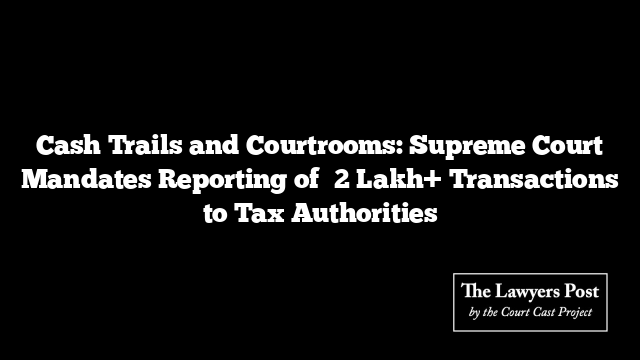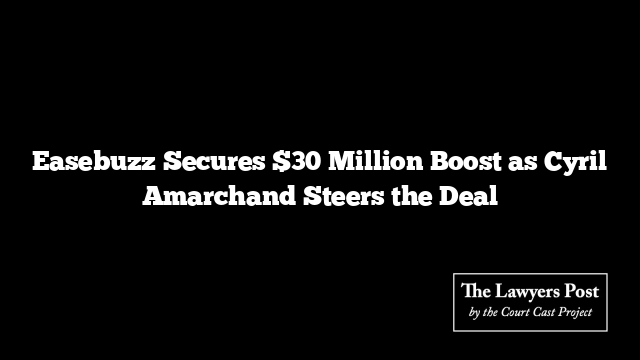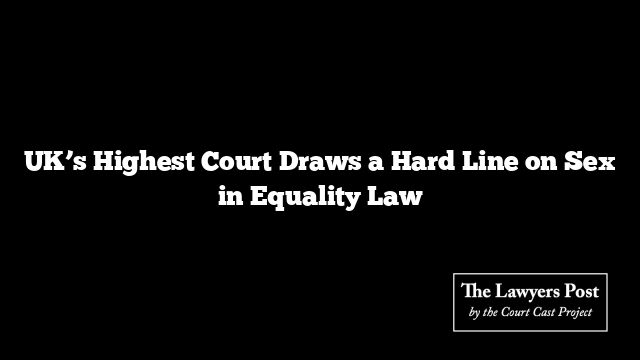In a ruling that sends a clear signal against under-the-table dealings, the Supreme Court has laid down a new protocol: if any civil suit involves a cash transaction of ₹2 lakh or more, the judiciary must alert the Income Tax Department. No more silent nods to suspicious stacks of currency hidden behind paperwork.
This directive isn’t limited to courts. If any property registration document reflects a cash component crossing ₹2 lakh, the sub-registrar is now duty-bound to sound the taxman’s alarm. And if that official turns a blind eye? The Income Tax Department is to report them straight to the Chief Secretary of the State or Union Territory for possible disciplinary action. No exceptions.
The judgment came down in a property dispute where the details raised red flags—a transaction involving ₹9 crores, with ₹75 lakhs allegedly handed over in cash, outside the framework of the legitimate owner. The property in question had been in the hands of RBANMS Educational Institution, a Bangalore-based public trust founded in 1873, since the early 20th century.
The court minced no words: the claimants, who filed a 2018 suit to block the trust from dealing with the property, had no legal standing. They weren’t even parties to the original ownership chain. Their reliance on an agreement to sell—with no connection to the actual holder of the title—was shot down as legally hollow.
In the Court’s view, such speculative litigation is more than just a nuisance—it’s a threat to institutions trying to do meaningful work. The Bench invoked Section 7 of the Transfer of Property Act, reminding everyone that only an owner or authorized person can transfer immovable property. An agreement to sell, without an executed deed, does not transfer rights.
And while the legal battle may have sparked the ruling, it was the shadowy ₹75 lakh cash component that really caught the Court’s eye. Citing Section 269ST of the Income Tax Act—enacted to rein in black money and promote digital transactions—the judges pointed out that such cash-heavy claims can’t just pass under the radar. The law not only penalizes recipients of such cash but puts the onus on the givers to explain their source of funds.
Here’s the playbook the Court laid out:
- Suits with cash claims above ₹2 lakh? Courts must inform the local Income Tax Department.
- Registration documents showing similar cash amounts? Sub-registrars must report to tax authorities.
- Unreported large cash deals discovered later? Income Tax authorities must escalate to the Chief Secretary if the registrar failed to disclose it.
- Tax authorities alerted? They must follow due process before initiating any action.
This wasn’t just a property dispute—it was a full-blown policy intervention cloaked in a civil case. By tethering the judiciary, sub-registrars, and tax authorities into one coordinated alert system, the Court made its stance clear: when big cash changes hands, silence is no longer an option.
The speculative suit was tossed. The trust’s possession upheld. The plaintiffs were cautioned. And in the bigger picture, a powerful signal was sent: the cash economy is on borrowed time, especially when it tries to sneak in through the courthouse doors.





